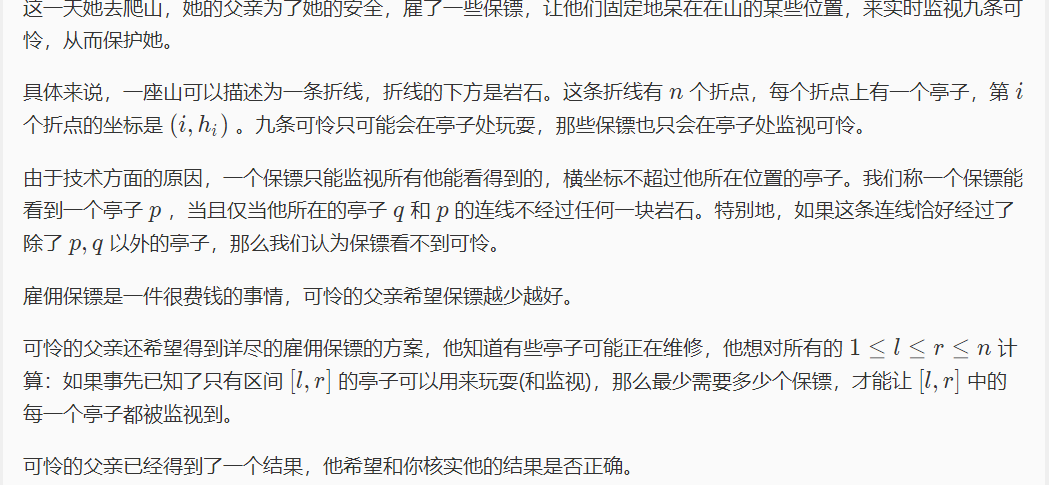interlinkage:
https://www.luogu.org/problemnew/show/P4563
description:

solution:
- 注意到对于范围$[l,r]$,$r$这个亭子一定要设置保镖
- 设$f_{l,r}$为活动范围为$[l,r]$所需的最小保镖数
- 枚举右端点$r$,然后从右向左遍历左端点$l$。设$p$为在$[l,r]$中$r$处能看到的最左的点
- 这样的话我们就必须在$p$或者$p-1$处放置保镖
- 于是$f_{l,r}=min(f_{l,p-1},f_{l,p})+f_{p+1,r}$
- 注意一下$p$的更新,若$l$到$r$连线的斜率小于$p$到$r$连线的斜率,那么就要更新$p=l$了
code:
#include<algorithm>
#include<cstring>
#include<cstdio>
#include<iostream>
#include<cmath>
using namespace std;
const int N=5000+15;
int n;
int h[N],f[N][N];
inline int read()
{
char ch=getchar();int s=0,f=1;
while (ch<'0'||ch>'9') {if (ch=='-') f=-1;ch=getchar();}
while (ch>='0'&&ch<='9') {s=(s<<3)+(s<<1)+ch-'0';ch=getchar();}
return s*f;
}
double slope(int l,int r) {return (double)(h[r]-h[l])/(r-l);}
bool cansee(int l,int p,int r)
{
return slope(l,r)<slope(p,r);
}
int main()
{
n=read();
for (int i=1;i<=n;i++) h[i]=read();
int ans=0;
for (int r=1;r<=n;r++)
{
f[r][r]=1;ans^=f[r][r];
int p=0;
for (int l=r-1;l>=1;l--)
{
if (!p||cansee(l,p,r)) p=l;
f[l][r]=min(f[l][p-1],f[l][p])+f[p+1][r];
ans^=f[l][r];
}
}
printf("%d
",ans);
return 0;
}